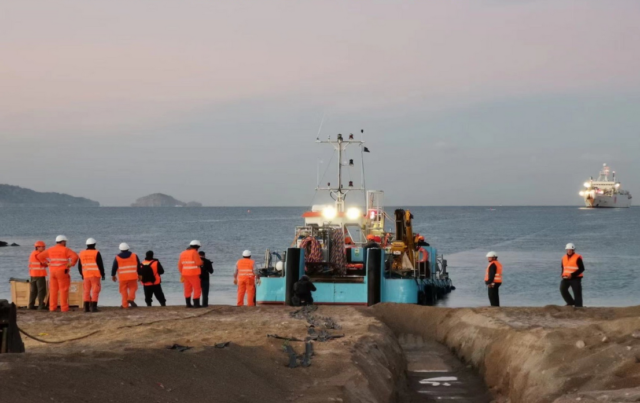

A $425 million undersea cable connecting China to Europe and Africa, which counts Huawei Technologies Co. as shareholder, has landed in Kenya.
The 15,000-kilometer (9,320-mile) Peace cable is part of Beijing’s so-called Digital Silk Road initiative that involves deploying information and communication technology infrastructure to boost trade and investment between the Asian economy and the rest of the world.
Peace travels over land from China to Pakistan, then underwater for about 7,500 miles before terminating in France. Another branch snakes southward to East Africa and lands in Kenya’s port city of Mombasa. An extension to Singapore and southern Africa is planned in the second phase, its promoters said in a press statement.
China’s 7,500-Mile Subsea Cable to Europe Fuels Internet Tension
Huawei, which was at the center of a long-simmering struggle between China and the U.S., is a shareholder in Hengtong Optic-Electric Co., the company building the cable.
The cable will help East Africa meet future broadband capacity requirements, bolster redundancy and minimize the transit time for connectivity to Asia and Europe, according to Mugo Kibati, Telkom Kenya Ltd.’s chief executive officer.
Peace cable is the sixth submarine cable to land in Kenya, and Telkom operates and maintains five of the six.
Undersea cables have significant strategic importance, with many owned and operated by U.S. companies, reinforcing that nation’s dominance over the Internet.
By 2019, China had become a landing point, owner, or supplier for 11.4% of the world’s undersea cables, according to the Institute of Peace and Conflict Studies and the Netherlands-based Leiden Asia Center. This proportion is expected to grow to 20% between 2025 and 2030.
